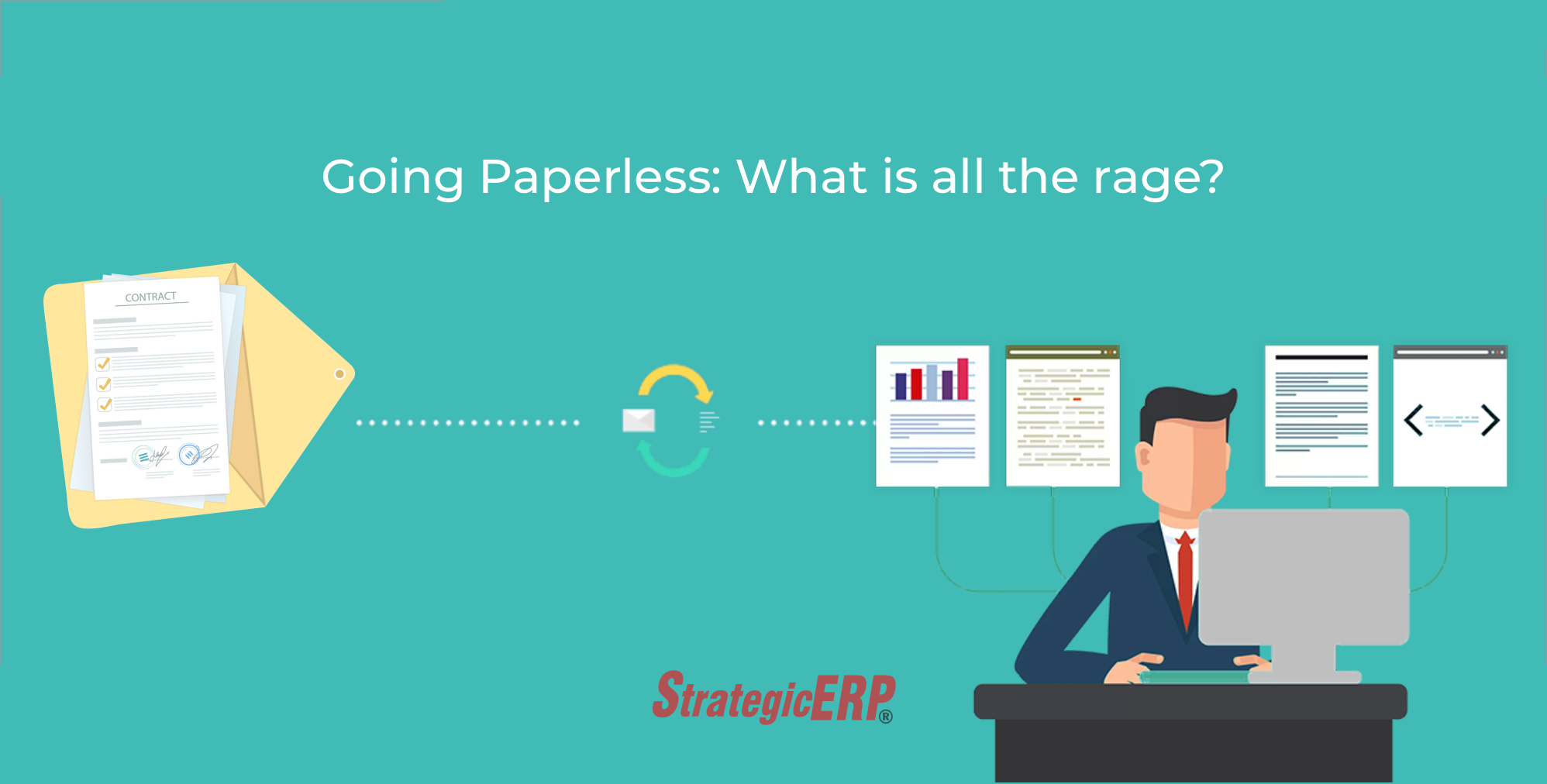Going Paperless: What is all the rage?
Category :
Blog posted by : Admin / 08 May, 2020
It's the age of technology, and the business world is at the forefront of the shift to complete technological reliability and sufficiency. For ages, paperwork has been the official mode of documentation, reporting, and file management. While there has been a massive shift in the way things are done, paperwork does still exist in the business world in some capacity; and in a lot of cases, it could do a lot better with less of it.
To put things into perspective, here are a few estimations of inefficiency caused by physical records:
-
Employees can lose up to 40% of their productive time looking for physical documents.
-
Not all print jobs are actually seen through, about 20% of them are wasted.
-
Over 40% of the paper in offices usually end up in the trash at the end of the Business day.
All this wastage can be averted in exchange for better efficiency and cost optimisation by using Digital Documentation and File Management.
With the entire world making a move towards going paper-free, we will examine whether going paperless is truly worth it.
Before we dive into the details, let's first address the fundamental question - What is going paperless?
A paperless or paper-free environment isn't necessarily one that is completely free of paper. It is rather an environment that relies chiefly on digital records and documentation and uses minimal paper. The concept of going paperless is the idea to digitise all physical documentation to the extent of practical efficiency, and use the least amount of paper that would still contribute to efficiency.
The reason no environment can be completely paperless is that going paperless also has its limitations. There is nothing in existence that is perfect, and as such a paperless environment also has certain limitations. These limitations mean that no environment can be completely paper-free on account of practical efficiency.
The advantages and benefits of a paper-free environment
The reason going paperless is a necessity for businesses today is that the benefits it has to offer are far too valuable to overlook. Following are the major benefits you should be aware of:
1. The time factor:
It is often said that time is the most valuable resource. If that is the case, the difference that going paperless makes is enormously valuable. Not only is file management and the organisation and storage of physical documentation cumbersome and highly demanding work, but the time that it takes to organise, file and manage its storage and maintenance is enormous. Also, with a physical documentation system, one can never know how much time it will take to find an old document, sometimes a document is not found in time in a physical documentation system during an urgent need for it.
2. Overall Efficiency:
A paper-free environment contributes enormously to efficiency as well. With a physical documentation system, it is almost an everyday occurrence that documents are misplaced, incorrectly filed, damaged due to improper handling by someone; all of this is averted by digital records.
Looking for a file/document in a paper environment can take any number of days, or even months given the size of the system; but with a digital records system, this would never happen because anything can be found with a few clicks in a computerised documentation system.
3. Information Sharing:
Sharing information has never been easier with the rise of the digital age. With computer devices being widely available, and even mobile phones becoming essentially mini computers, one can share information from one end of the world to the other anytime and within a matter of seconds.
This doesn't stand true only for records that are already digital, but with unprecedented advances in smartphone technology, virtually everyone can now scan even physical documents within seconds and convert them into digital records.
4. The Space Factor:
Physical records take up an enormous amount of space. As the years pass by, the amount of records increase, and so does the space that takes to store all of it. With a digital records system, storage space will be reduced to a fraction of it.
One can even choose to store documents on the cloud, saving even more space.
5. The Cost Factor:
Digitisation of records saves money in numerous ways. Not only does digitisation reduce expenses on stationery and other office supplies such as paper, ink, printers, etc., but improved efficiency means less money is spent on maintenance of physical records.
The labour involved in maintaining physical records is greatly reduced, which also saves on the money spent on that labour.
6. The environmental factor:
The environment also benefits from the digitisation of records. Manufacturing paper and other paper products does not only cause deforestation, but it also produces greenhouse gases and aggravates global warming. Not to mention that the disposal of paper further adds to the destruction of the environment. Also, other products that go into physical documentation such as toners and ink damage the environment. Hence, a paper-free office serves better for the planet.
The Wild Card:
With all the benefits that going paperless offers, there is one particular factor that is looked at very differently from two different ends of the spectrum.
Security is a major factor in all walks of life. In the business world, a breach in security can mean the instant demise of a business. Considering the fact that there are both positives and negatives with both physical and digital systems, it proves to purely be a judgement call. Physical records might prove more secure in some situations, whereas digital records will prove to be more secure in others.
We hope that this blog has equipped you with sufficient information to prompt you to make the leap and go paperless. Go green!
Check out our solutions which provide E-Files Management free of any extra cost.
- Jasper Nadar








